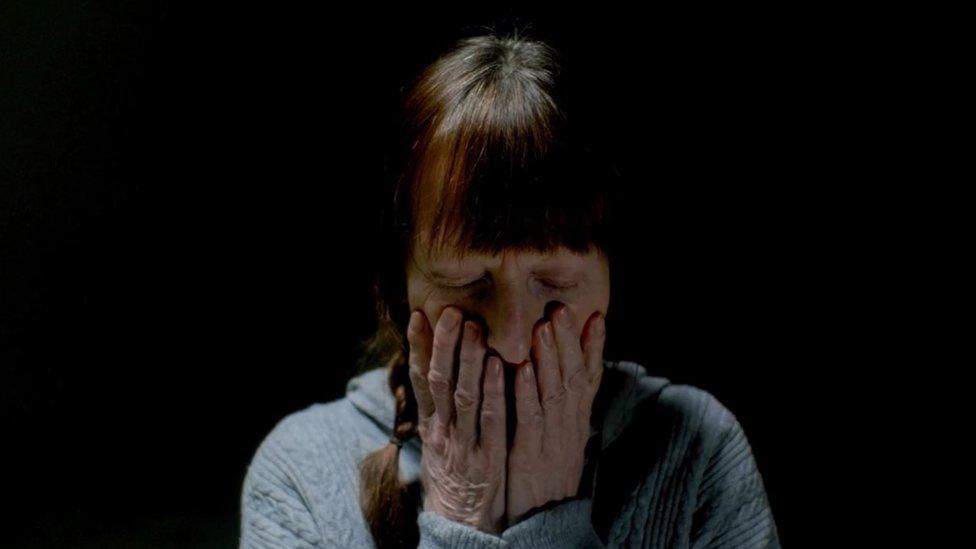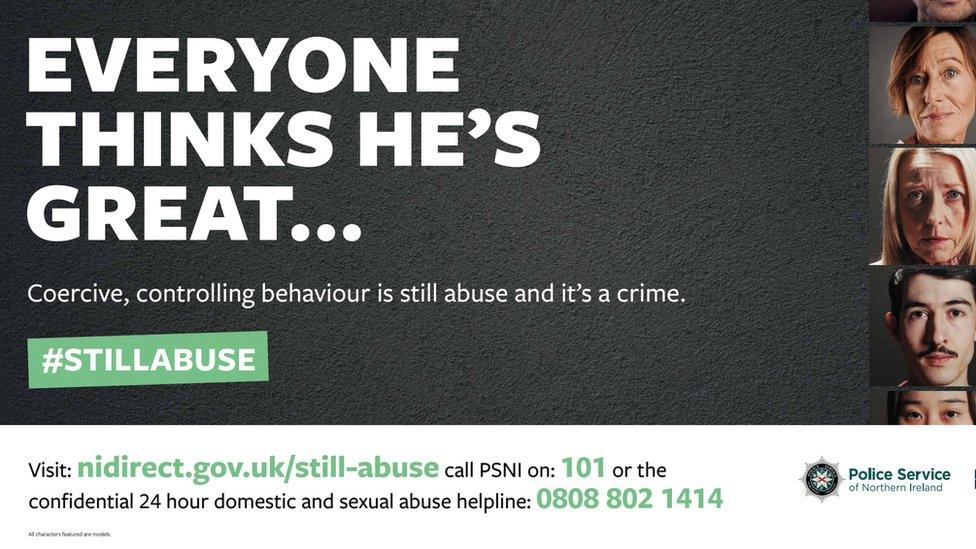Domestic abuse: New coercive control laws now in force
- Published

Stormont passed legislation making coercive control a specific offence in January last year
New domestic abuse laws have come into force in Northern Ireland.
Stormont passed legislation making coercive control a specific offence in January last year.
Coercive control includes psychological and financial abuse and non-violent intimidation.
Justice Minister Naomi Long said the new offence was a "milestone" and a "real step change" which would bring with it the potential for longer sentences.
The new offence came into effect with the launch of a campaign to raise awareness, external of the new legislation, including a website where people can find out more about domestic abuse, external.

"Domestic abuse is wrong and will not be tolerated, not by our community and crucially now not by the law," said Mrs Long.
"No longer will those that abuse a loved one, be that a partner, former partner, or a close family member be able to evade justice. Abusers will be punished.
"The changes brought forward will help many people, regardless of gender, sexual orientation, age, class, race or religion.
"This is particularly important given that anyone can be a victim, just as anyone can be an abuser."
Chief Constable Simon Byrne said it was a "defining moment for our criminal justice system".
"Officers and staff members have been trained to recognise and respond to reports of coercive control and how to use the new powers they now have to safeguard children that witness any form of domestic abuse," he said.
"Domestic abuse is not just physical.
"As of today, we are now empowered to address what has been invisible, in plain sight, for so long."
Legislation to make stalking criminal in Northern Ireland is also expected to pass its final hurdle at Stormont this week.
If you have been affected by any of the issues in this article, there is a list of organisations that may be able to help at BBC Action Line.
- Published18 January 2021
